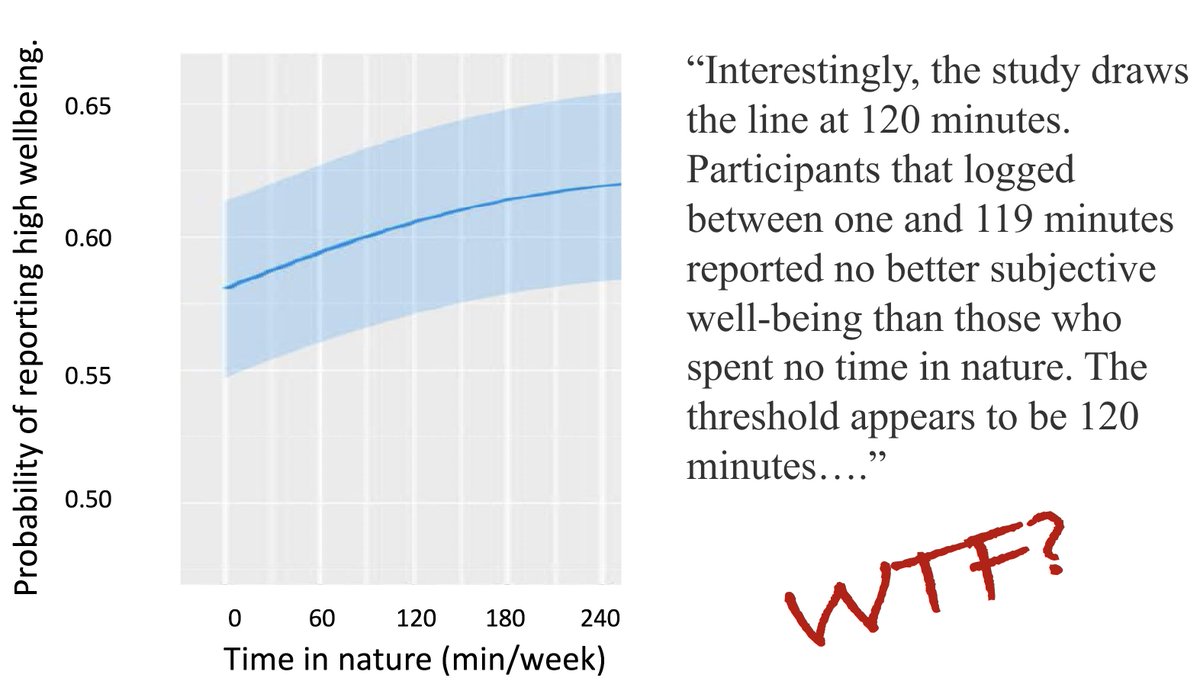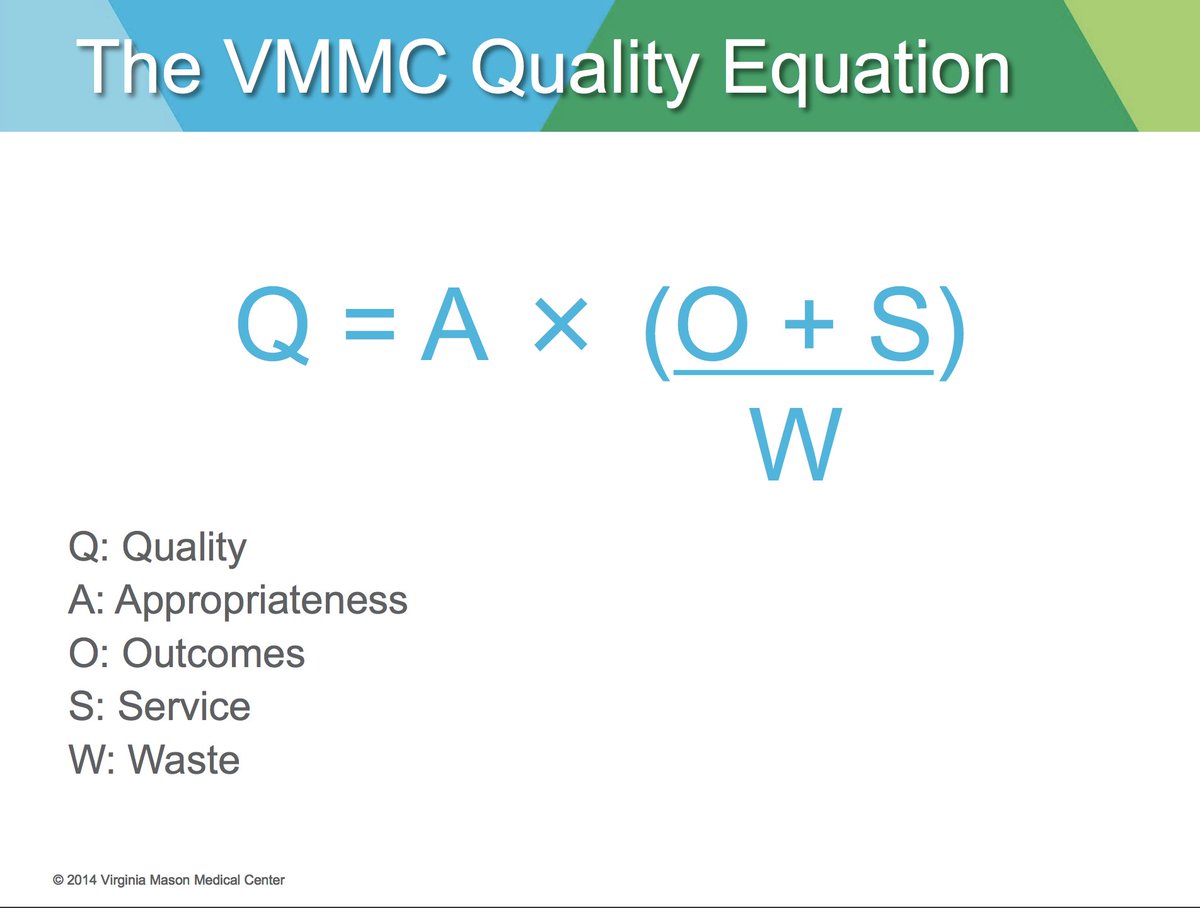bigthink.com/surprising-sci…
I believe myself that time in nature improves well-being, so in the spirit of following my own advice, let’s look closely at this story.
Or it could be some common cause (wealth, physical health, etc.) causes both well-being and time in nature. The authors attempt to control for some of these, but it’s hard.


+ the original research paper nature.com/articles/s4159…
+ the press release from Exeter University exeter.ac.uk/research/newsa…
+ the @BigThink story.
bigthink.com/surprising-sci…

First of all, the study participants are grouped into categories:
0 min/week,
1-59 min/week,
60-119 min/week,
120-179 min/week, etc.
If we want to communicate science to the public, we need to work together across these levels to do better.











